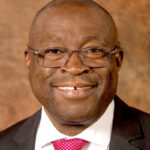President Cyril Ramaphosa says the transition from coal dependent energy sources towards cleaner energy must be in line with South Africa’s developmental goals.
The President was addressing the nation through his weekly newsletter on the eve of the 2022 United Nations Framework Convention on Climate Change (UNFCCC) also known as COP27.
“Although South Africa is playing its part in the global climate change effort, we have been consistent in emphasising our right to development. We must ensure that the transition to a low-carbon, climate change resilient economy does not jeopardise our developmental goals.
“The move from fossil fuels to greener, cleaner energy sources cannot take place at the expense of economic growth and job creation,” he said.
The President reflected that COP27 comes at a time when developing countries face “increasing pressure” to decarbonise.
He added that for that to happen, developed economies must fulfil commitments to assist smaller economies to “meet their climate change commitments”.
“Seven years since the Paris Agreement was adopted at COP21, countries with developed economies have largely failed to honour their commitments to provide substantial financial support for climate actions in developing economies.
“One of the issues we will be highlighting at COP27 is that multilateral financial institutions need to lower the cost for developing economies to borrow money to fund their climate adaptation and mitigation efforts,” President Ramaphosa said.
Climate change impact
The President reflected that historically, the continent of Africa “bears the least responsibility for climate change, but it is Africa that is feeling its effects most”.
He cited recent flooding in parts of the country which claimed more than 400 lives and destroyed public and private infrastructure as an indication of the effects of climate change.
“Many people may think that the discussions taking place in Egypt at COP27 are far removed from their everyday lives. This is far from the case. We all have a clear stake and an abiding interest in the outcomes of COP27.
“The flooding earlier this year, the wildfires in the Table Mountain range, the locust plague outbreak in parts of the Northern Cape, Western Cape and Eastern Cape, are all associated with climate change. They affect our health and safety, our social and economic infrastructure and our nation’s food security,” he said.
President Ramaphosa acknowledged that South Africa itself will need “substantial support…to build the resilience that is needed to protect our country and safeguard our economy” against the economic and social effects of natural disasters induced by climate change.
“It is only with significant additional funding that we can ensure that future generations of South Africans live in an environment that is clean, conducive to health and well-being, and that has not been destroyed because of the inaction of today’s leaders,” he said.












